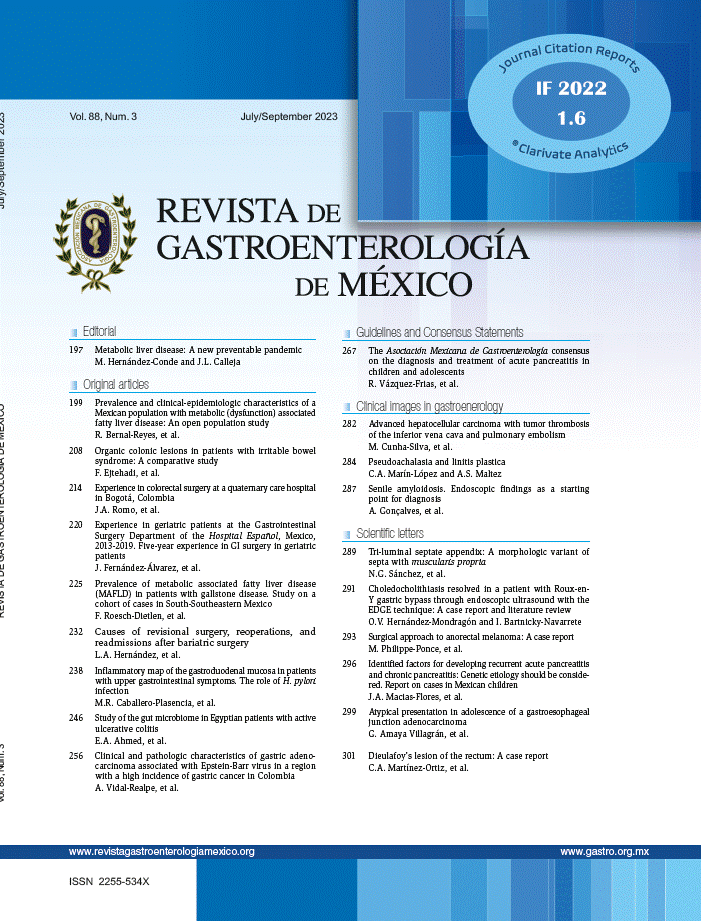We appreciate the opportune comments of Dr. Isaac Ruiz regarding the Mexican Consensus on the Treatment of Hepatitis C,1 and our response follows below.
As Dr. Ruiz correctly points out, there is a growing concern worldwide about the appearance of resistance to the direct-acting antiviral drugs that aim to cure hepatitis C. Recent studies underline the fact that the frequency of the resistance-associated substitutions (RASs) has increased dramatically. Such is the case in China, where rates of 18% reported in 2008 rose to 42% in 2016, specifically for the NS5A nonstructural protein of the genotype 1B virus at position Y93H, conferring a medium-to-high resistance level on inhibitors, such as daclatasvir,2 which we cited as a management option. There are no data in Mexico with respect to that, but as Dr. Ruiz stated, we can suppose that the situation is similar the information reported worldwide.
The suggestion made by Dr. Ruiz, and supported by European countries, to simplify treatment through the use of pan-genotype regimens as an appropriate strategy in a country with limited resources, such as Mexico, is appealing. We should clarify that at the date in which the consensus document was written and submitted for publication (August 2017), the sofosbuvir/velpatasvir regimen was not yet available, being approved in Mexico in November 2017, nor was the glecaprevir/pibrentasvir regimen available, as it was not on the market until October 2018.
As Dr. Ruiz proposes, we would focus on detecting the patients infected with the C virus, and as is the duty of the professional body we belong to, advise the proper authorities to comply with the recommendation of the World Health Organization, which seeks to eliminate the C virus by the year 2030.3 However, it should be emphasized that such an ambitious goal is very complex and goes beyond recommending a specific regimen(s). To be achieved in Mexico, or in other countries, several coordinated actions must be integrated,4 and they include the following:
- •
Awareness and prevention: achieving this though a multimedia campaign to raise social awareness about the HCV problem.
- •
Testing and diagnosis: a key factor in achieving elimination is increasing the case detection rate.
- •
Linkage to care: emphasizes the importance of regional healthcare networks made up of the numerous members connected to the theme (hepatitis team) that seek to monitor and protect local identification and link the patients with HCV from the different risk groups to clinical care.
- •
Access to medications and qualified health services: making it possible for virtually all patients to have access to care and treatment with direct-acting antivirals.
- •
Monitoring and evaluation: guaranteeing that all patients are registered and monitored at each step of the HCV healthcare cascade, which is essential for achieving its elimination.
No financial support was received in relation to this study/article.
Conflict of interestDr. Francisco J. Bosques Padilla has been a speaker for Takeda, Abbvie, and MSD.
Please cite this article as: Bosques-Padilla FJ. Respuesta al Dr. Isaac Ruiz del Dr. Francisco Javier Bosques Padilla en nombre del grupo del Consenso Mexicano para el Tratamiento de la Hepatitis C. Revista de Gastroenterología de México. 2019;84:269.



